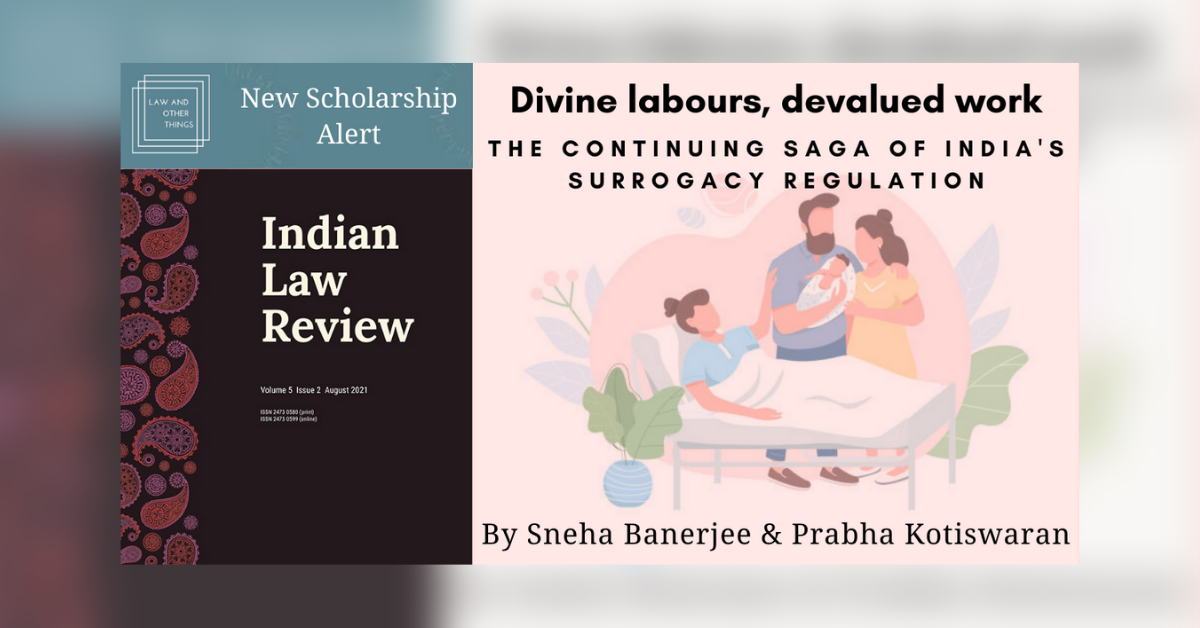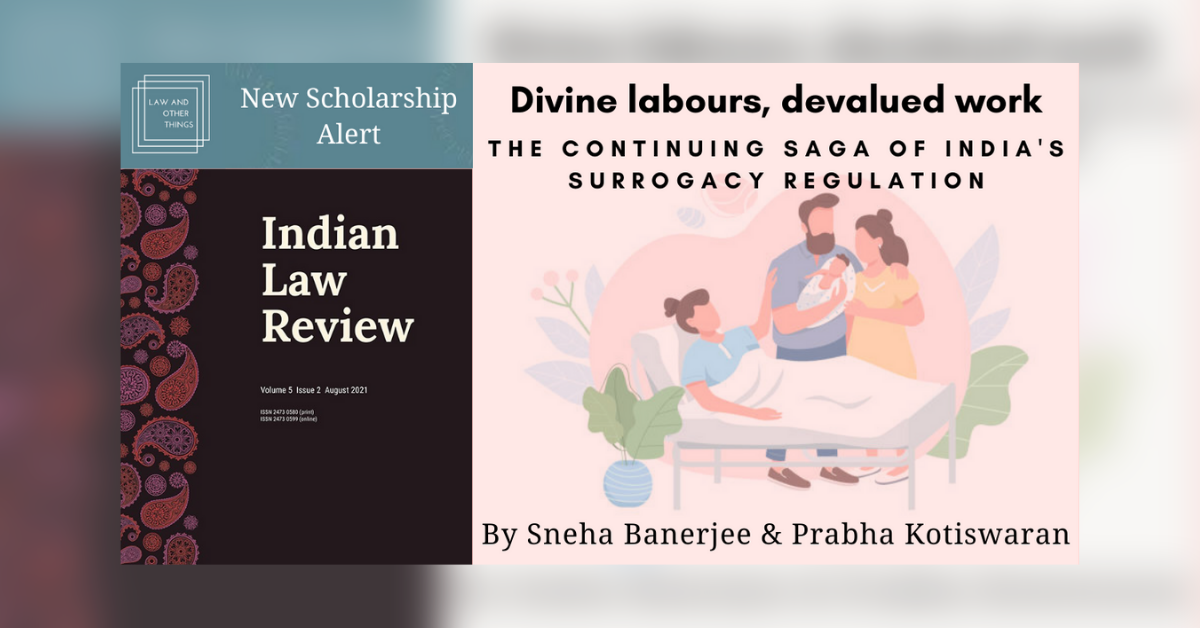Summary: This piece by Vrinda Chaturvedi examines the scope and limits of the discretion granted to Presiding Officers of the Indian Parliament. It also analyzes the need for a review of the same in light of the recent suspension of 146 members of the Indian Parliament.
The suspension of 146 Members of Parliament marked a turbulent end to the winter session of the Parliament this month. This privation of democratic ideals and parliamentary privileges has now left over 35 crore Indians unrepresented in the Parliament. The spat surfaced when the Opposition demanded an official statement from Home Minister Amit Shah concerning the recent security breach in the Parliament following which the Lok Sabha Speaker Om Birla and Rajya Sabha Chairman Jagdeep Dhankar suspended the members, deeming the incessant demand for debate by the Opposition and the continuous ignorance of their pleas for order an “abuse” of the Chair and of the Houses.
At the peak of this alleged evisceration of citizen’s voices and representation, it is pertinent to understand the stand of the Apex Court and the status quo of decisions if these suspensions were to be challenged in Court as the Presiding officers of both Houses are capable of enforcing digress by resorting to such suspensions en masse.
The Legal provisions for Suspension
Rule 256 of the Rules of Procedure and Conduct of Business in the Rajya Sabha encompasses such suspension if any member “disregards the authority of the Chair” or “abuses the rules of the Council.” Rule 374 of the Rules of Procedure and Conduct of Business in the Lok Sabha mandate the same grounds for suspension of a member of the Lower House. The power to execute these rules lies with the Speaker and the Chairman.
“Powers, privileges and immunities” remain statutorily undefined, and for this reason the judicial organs will always have a responsibility to play a role. An interplay of Article 212(1) and Article 105 which bar parliamentary proceedings from being the object of judicial scrutiny and enshrine certain rights and privileges upon members of Parliament, respectively, is an inevitable inclusion in the debate.
Article 212(1) and the Rights Paradox
Article 212(1) of the Constitution of India explicitly excludes parliamentary proceedings from being brought before a Court, this is contradictory to not only the rights of the Members as under Article 105 which enshrines upon them freedom of speech and other immunities enjoyed within the House, but also an infringement of the right of the masses to be represented. The latter can be translated to the implicit jurisdiction of the Supreme Court as the guardian of the rights of citizens.
However, procedural functioning of the Houses and Councils has been subject to judicial intervention before, as evidenced from the recent judgment in Ashish Shelar and Ors. v. The Maharashtra Legislative Assembly and Anr., where the suspension of a dozen BJP MLAs from the Maharashtra Legislative Assembly was challenged. The Apex Court ruled that such suspension could only last for the remainder of the session. In our case, the contention is not the period of the suspension but the validity of it and whether the force of the above-mentioned rules could function as double-edged swords to silence the opposition in the future might require a role to be played by the Supreme Court.
In Raja Ram Pal v. Hon’ble Speaker, Lok Sabha and Ors., the Apex Court decided crucial issues regarding the right of a House of Parliament to expel its members and upheld the necessity of rules of suspension and expulsion as part of the “self-protective” composition of the House in order to maintain the decorum of proceedings. The Court subjected both, the rights of the members and the masses, to the limitation of law under Article 19(4).
In Alagaapuram R. Mohanraj v. T.N. Legislative Assembly , the Court placed reliance on Ram Pal and emphasised that any rights or immunities of members of the House do not go beyond the precincts of the House thus, invalidating any claim under Article 19. Here, the Court was also tasked with suspension extending ten days into the next session as held by the Privileges committee deciding upon the suspension of 19 members of the Assembly.
Summarily, in view of the above pronouncements, the current case of suspension of MPs demands judicial intervention to settle whether the exercise of an elected representative’s right to ask questions and raise concerns, as was done in the case of the security breach as disregard or abuse when leading to disorder in the House can be equated to disregard or abuse of the processes of the House. As per Ram Pal, the Court would be likely to tread the self-protective stance. However, if the arguments as in Mohanraj resurface, the Court, seeing that the suspensions were handed out en masse following the exercise of a right within the premises of the Houses could grant relief to the MPs. This rights-based approach will naturally lead us to the challenge to a quasi-judicial role of the presiding Officers and the claim of violation of principles of natural justice in discharging such a role. The Court has been affirming of entertaining such a challenge in Ravi S. Naik v. Union of India albeit handing out a caveat that such rights are not “immutable but flexible.” An interesting move of the Court would be to entertain the role and extent of the powers of the Presiding Officers being the sole judge of the satisfaction of these grounds.
Demand v. Discretion: how far, how wide
The Supreme Court in Raghav Chadha v. Rajya Sabha Secretariat, had previously voiced its discontent at the indefinite suspension of AAP MP Raghav Chadha from the Rajya Sabha in August this year and termed it “grossly irrational.” Whether the Court aimed to set a precedent in cases of arbitrary suspension is still unclear. In Chadha’s case, the Court relegated itself to the position of a mediator, directing the MP to render an unconditional apology, leading to the withdrawal of such suspension. However, such an attitude might be infructuous in our case. Here, two issues arise- first, whether the demand for a debate and statement on a matter of national security and the resultant chaos (which is not shocking or new in the Houses in case of such issues) qualifies as “abuse” or “disregard” of parliamentary authority or the Chair and second, how far and wide do the Presiding Officer’s powers go in determining so.
Firstly, the alleged suppression of opposition’s opinion and the hasty passing of the three new Criminal Bills, a Telecommunications Bill, the Jammu and Kashmir Reorganisation Bill (Second Amendment), the Post Office Bill, all dealing with changes to volatile subject-matters, often debated vociferously in the Parliament, has lent support to the alleged ulterior motives attributed to the Government. The silence of the Supreme Court in matters of public representation would further the erosion of India’s democratic essence.
Secondly, the constitutional stance of the Presiding officers is expected to be a neutral one, the ongoings have depicted that bias and inclinations are unavoidable. This question does not merely relate to “parliamentary proceedings” but to the arbitrary functioning of the executive and legislature breaching the separation of powers. In Kihoto Hollohan v. Zachillhu and Ors., the Court affirmed that an “impartial and unbiased” role must be carried out by Presiding officers when in roles of final authorities on suspension, expulsion and disqualification cases has hampered the fulfilment of a transparent, impartial and accountable position attributed to them. The Apex Court has been critical of this inherent partiality. In cases such as suspension, the Speaker or Chairman assumes a quasi-judicial role which has been frowned upon by the Court in Shrimanth Balasaheb Patil v. Hon’ble Speaker, Karnataka Legislative Assembly and Ors. by suggesting an amendment to the Constitution. The same was also recommended by the Supreme Court in Keisham Meghachandra Singh vs. the Hon’ble Speaker Manipur Legislative Assembly & Ors. keeping in mind the fact that a Speaker continues to command a political affiliation either de facto or de jure. The reference of the suspension of some of these MPs to a Privileges Committee, which has no time bar in pronouncing a decision impact the case of suspension is an ancillary issue. The committee comprising 15 or 10 (Lok Sabha and Rajya Sabha respectively) members, nominated by the presiding officers of each House in order to investigate the breach of privileges by the suspended MPs also portends a bleak future in terms of its appointing authority and members. The composition of the Committee and their appointment by the Speaker, who in this case is also the suspending authority and the final decision maker are unsettling matters. As per above considerations, what ensues after such investigation and final decision would remain incipient and will definitely merit serious legal scholarship around the powers of the Presiding officers and the propensity of them being reduced to mere executive appendages.
The incidence of such suspension at a time when the government has actively been targeted for an anti-opposition stance almost begs the attention of the Apex Court that wears the proud broach of not only the final interpreter of the Constitution but also the tailor of the democratic moral and ideals of the fabric of our nation encapsulated in this constitutional morality.
Vrinda Chaturvedi is a third year law student at HNLU, Raipur. She has keen interest in constitutional and criminal law.
[Ed Note: This Article has been edited by Ajinkyaraj Pacharaney and published by Harshitha Adari from the Student Editorial Team.]





Wonderful article